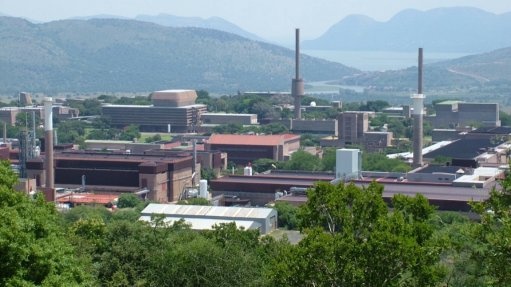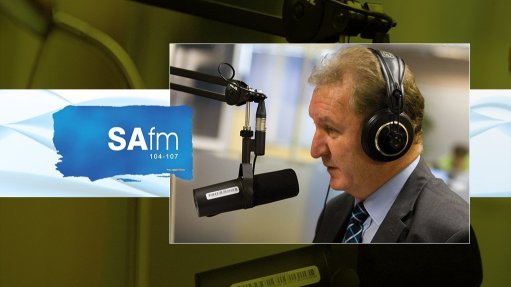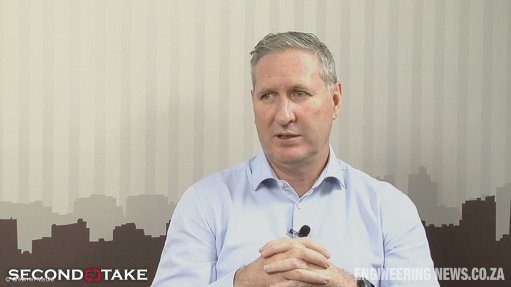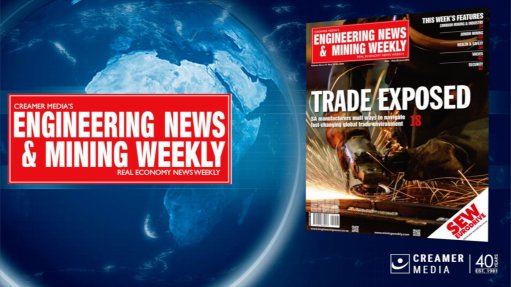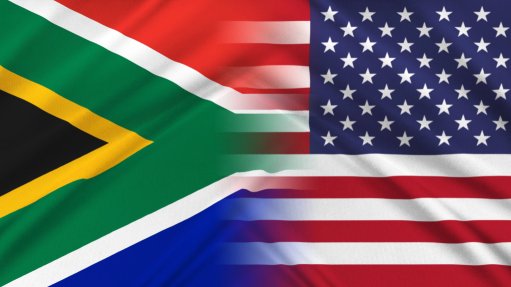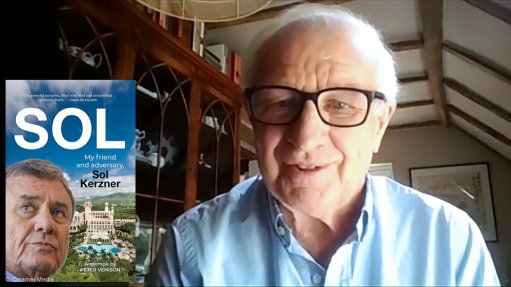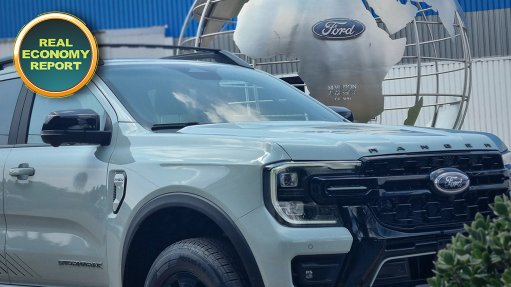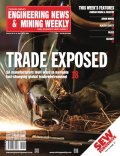Metair performing well despite supply chain disruptions
JSE-listed automotive and energy components manufacturer Metair says its verticals are performing well relative to their challenging operating environments, while also assuring shareholders that key projects remain on track in the automotive components vertical, despite the impact of global supply chain disruptions, semi-conductor shortages and shipping constraints, including port disruptions at State-owned Transnet's operations.
Further, the energy storage vertical continues to deliver strong automotive battery volumes and revenues despite the Turkish and Romanian operations navigating through short-term inflationary cost pressures and the ongoing war in Ukraine.
Inflation in Turkey rose dramatically during the first half of this year, as indicated during the interim reporting period, with the yearly inflation rate reaching 85.5% in October. Despite the ongoing economic challenges in Türkiye, Mutlu Akü remains resilient with management interventions yielding positive results, Metair notes in an update to shareholders published on December 5.
"The group is in a satisfactory financial position to support current expansion projects and has the required lending facilities in place to support operations as well as the expansion programmes.
"The consequences of supply chain disruptions and the availability of raw materials have, however, necessitated a greater inventory holding strategy to mitigate shipping delays and airfreight costs," it highlights.
Additionally, the group formally received the covenant waiver from lenders and adjustments to the covenant calculations, mainly for hyperinflation impacts, are under consideration, according to International Accounting Standards for financial reporting in hyperinflationary economies.
"Metair continues to actively work towards opportunities to unlock value in the short and long term within both business verticals. The consideration of a value unlock process within energy storage for stakeholders has not translated into an executable transaction, largely owing to the geopolitical climate within Eastern Europe. The board will revisit its strategic options as and when the operating climate improves.
"In the interim, Metair remains focused on maximising the value potential of the energy storage vertical and on executing on the growth and expansion opportunities available for the automotive components vertical," the company reports.
AUTOMOTIVE COMPONENTS
The temporary suspension of production at Toyota South Africa Motors, following the severe flooding in KwaZulu-Natal in April, had a significant impact on Metair's South African operations; however, production levels resumed during September and have stabilised at pre-flood levels.
The recovery of the Toyota South Africa Prospecton plant, which was severely damaged by floods, is a huge accomplishment by Toyota South Africa and was critical to the wider industry, specifically suppliers from the automotive component manufacturing sector.
Metair's business interruption insurance claim has progressed well, with R400-million in cash received to date. The total claim is capped at R500-million and is expected to be finalised in January 2023, with the final claim currently under review by the insurers.
Further, production of the group’s major new model investment, the next-generation Ford Ranger, commenced on November 16 at Ford’s Silverton assembly plant. Metair subsidiaries have entered production and ramp-up phases with peak production levels planned from January 2023.
"The vertical expects to incur preproduction and engineering cash costs of up to R475-million related to the new model in 2022 financial year, of which it expects at least 35% will be capitalised," Metair notes.
Meanwhile, raw material shortages, including semi-conductor chips; supply chain delays; and the loss of Toyota South Africa production time owing to the flooding, have impacted original-equipment manufacturer (OEM) volumes.
"While there is a degree of uncertainty around the short-term volume fluctuation for the remainder of the year, volume expectations over the model lives remain unchanged.
"Metair expects 2022 industry production volumes to be ahead of 2021 volumes, at around 550 000 cars, which represents around 90% of 2019, or pre-Covid-19, volumes. Metair expects OEM production volumes to progressively increase in excess of 700 000 units from 2023, subject to supply chain stability," the company says.
Further, management interventions to curb the impact of short-term operational pressures are in place and ongoing investments are expected to deliver returns in line with Metair’s targets over the life of the contract.
"New model and facelift launches are expected to drive meaningful growth over the medium to long term, most notably the ongoing contract into Ford’s investment into the South African automotive industry, supporting incremental revenue for the Metair group of an estimated R46-billion over model life."
ENERGY STORAGE
The energy storage vertical continues to perform resiliently under tough operating conditions, including high inflation fuelled by unprecedented energy and labour cost increases across Türkiye and Romania. Although these costs have generally been recovered from customers following a slight time lag, margins have been negatively impacted in the short-term.
Market demand has remained strong and international demand for lead acid batteries across all sales channels, but especially Türkiye, remains resilient. Hard currency export sales provide a natural hedge to limit the impact of foreign exchange volatility and inflationary pressures, Metair notes.
"The last quarter of the calendar year is the most volume-sensitive time for the business and final yearly volumes will depend on the final sales volumes achieved in this last quarter. Currently, total automotive battery volumes sold are expected to reach between 8.5-million and nine-million units for the full year, as we anticipate Mutlu Akü export volumes increasing by at least 17% from the 2021 financial year.
"Volumes from Rombat are expected to be around 15% lower mainly owing to dampened consumer confidence from the ongoing conflict in Ukraine. With efforts to improve competitiveness and market share progressing, sales volumes for First National Battery in South Africa are expected to be on par with the 2021 financial year," the company says.
Additionally, under hyperinflationary accounting standards, Turkish Lira results and non-monetary asset and liability balances, including undistributed profits, are restated to present value equivalent local currency amounts (adjusted based on consumer price inflation before translation to South African rand at reporting-date exchange rate).
"Although operations remain unchanged, with a substantial portion of commodity input costs and sales being hard currency denominated and not directly subject to Turkish inflation, as well as Mutlu Akü’s strong non-monetary asset base, the accounting impact on profit and loss is negative, as the International Accounting Standards require the restatement of Mutlu Akü’s retained income within current year earnings. Mutlu Akü continues to grow both volumes and prices in 2022 financial year, and strategies are in place to manage hyperinflation operationally."
Further, although Türkiye’s central bank cut its benchmark interest rate by 1.5 percentage points to 9% despite the country’s high inflation rate, the Turkish banking system has not passed on the lower interest rates to customers owing to the high inflation.
Additionally, although there are currently no restrictions on remittances of dividends from Türkiye and access to foreign currencies remains unrestricted, the Turkish government has issued new banking regulations, which include a rule that forces exporters to sell 40% of their foreign-currency revenue to the central bank.
Mutlu Akü has assessed the impact of the financial regulations and is developing measures to minimise interest rate and foreign exchange volatilities, Metair says.
Comments
Press Office
Announcements
What's On
Subscribe to improve your user experience...
Option 1 (equivalent of R125 a month):
Receive a weekly copy of Creamer Media's Engineering News & Mining Weekly magazine
(print copy for those in South Africa and e-magazine for those outside of South Africa)
Receive daily email newsletters
Access to full search results
Access archive of magazine back copies
Access to Projects in Progress
Access to ONE Research Report of your choice in PDF format
Option 2 (equivalent of R375 a month):
All benefits from Option 1
PLUS
Access to Creamer Media's Research Channel Africa for ALL Research Reports, in PDF format, on various industrial and mining sectors
including Electricity; Water; Energy Transition; Hydrogen; Roads, Rail and Ports; Coal; Gold; Platinum; Battery Metals; etc.
Already a subscriber?
Forgotten your password?
Receive weekly copy of Creamer Media's Engineering News & Mining Weekly magazine (print copy for those in South Africa and e-magazine for those outside of South Africa)
➕
Recieve daily email newsletters
➕
Access to full search results
➕
Access archive of magazine back copies
➕
Access to Projects in Progress
➕
Access to ONE Research Report of your choice in PDF format
RESEARCH CHANNEL AFRICA
R4500 (equivalent of R375 a month)
SUBSCRIBEAll benefits from Option 1
➕
Access to Creamer Media's Research Channel Africa for ALL Research Reports on various industrial and mining sectors, in PDF format, including on:
Electricity
➕
Water
➕
Energy Transition
➕
Hydrogen
➕
Roads, Rail and Ports
➕
Coal
➕
Gold
➕
Platinum
➕
Battery Metals
➕
etc.
Receive all benefits from Option 1 or Option 2 delivered to numerous people at your company
➕
Multiple User names and Passwords for simultaneous log-ins
➕
Intranet integration access to all in your organisation







